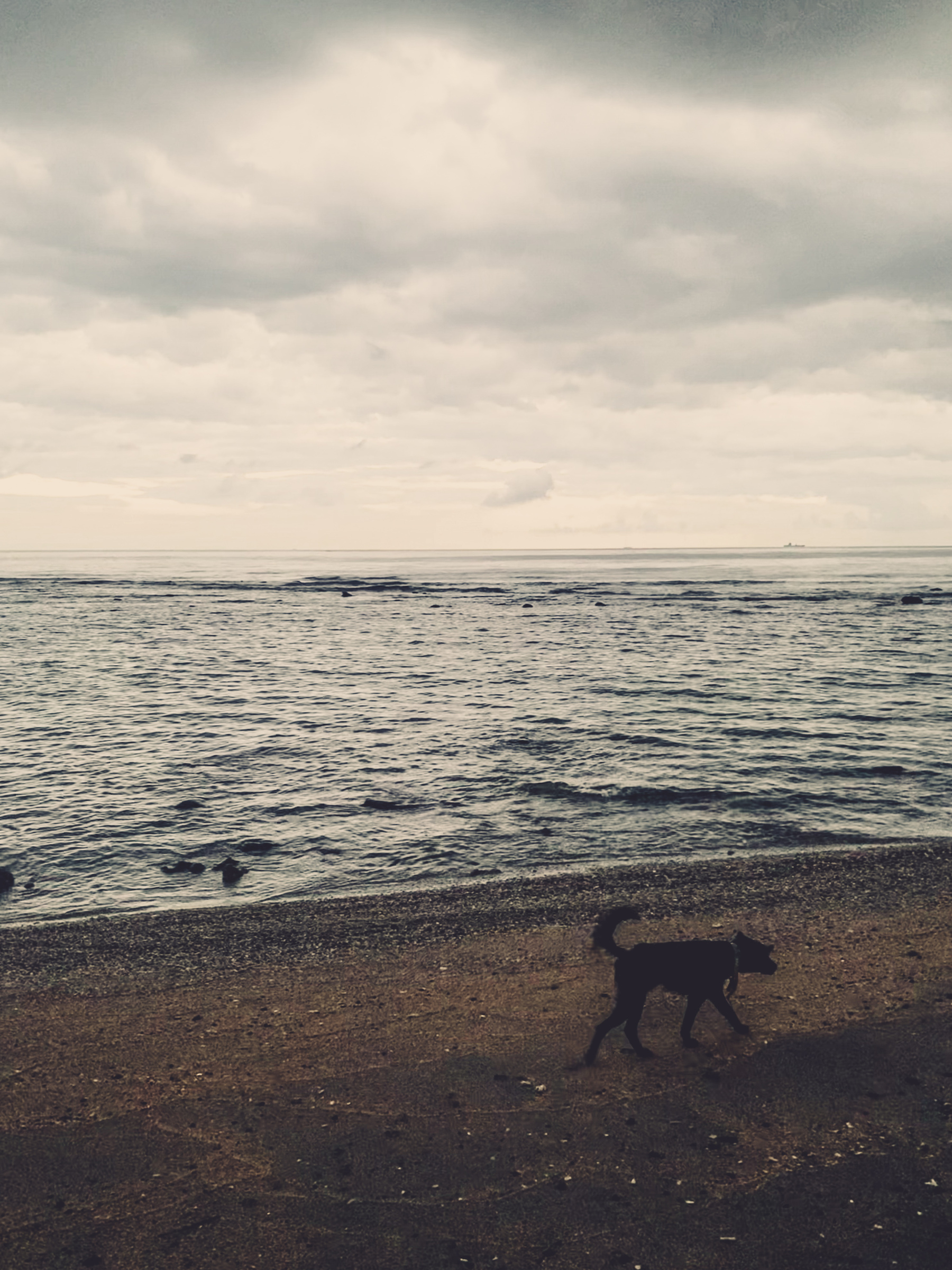Places
A guest reported seeing a jalak Bali, or Bali myna, one morning on our mulberry tree. These are so rare that we wondered whether it was a real sighting. The myna (Leucopsar rothschildi, also called Bali starling) is a critically endangered species. Most of them are located in the northwest corner of the island, in a national park. They are unfortunately heavily poached and sold on the black market as pets.
Then I discovered that a breed and release facility is close, around 1.5 km away from our house. That’s “as the myna bird flies”— it’s on the other side of a deep jungle ravine. For us to visit would take around 4 hours of driving.
But now I really want to visit.
The snow-white, blue-masked myna became the voice for this poem. I’d very much like to see one myself, so I’m often checking the mulberry these days.
//
The Myna // Sang Jalak
The Myna
So here we are, in this
Third World. Palm trees,
Rice paddies, machetes.
Doves couple on concrete walls.
Seasalt breeze, like surface
Fire . . . Sapphire, emerald.
Sanctuary comes, commands
Silence. Our mothers cut tongues
To police. Masked,
The myna bird speaks
On the mulberry tree. Elsewhere,
Ants against an elephant.
//
Sang Jalak
Jadi disinilah kita,
Di Dunia Ketiga ini. Pohon palem,
Sawah, parang.
Merpati bercinta di dinding beton.
Angin laut asin, seperti permukaan
Api . . . Safir, zamrud.
Suaka datang, menuntut
Keheningan. Ibu-ibu kita memotong
Lidah ke polisi. Bertopeng—
Jalak Bali berbicara,
Di pohon murbei. Di tempat lain,
Semut melawan gajah.
//
military parade (no country for children)
a block of human souls, murder
of mirrors: organism heaves
a moving multitude of cells,
populous lung, as if to breathe.
populous gun, snap-locks to form:
fifty by fifty by fifty, we
as one, on riven necks, heads turn.
the mass of bodies march past Xi.
in uniform, blind discipline:
black boots, white arms, clean unison
defines the face; grey, seamless film,
a weapon’s youthful complexion.
meanwhile, across Pacific waves,
the people’s whore, instead of school,
deploys machines to make selves, slaves;
the suicidal human rule.
chip factories to feed the stocks:
by battery classroom, killing ground
to grind the greening down, by glass
addiction, into tyrant’s hound.
the glaze that, dying, skins the eyes,
steals vision from the animal;
filters from birth its grave sunrise
and petrifies the living soul.
the glaze that, seeing, sells and tells;
in masks, they empty out the homes.
nobody ever goes inside;
nobody ever is alone.
meanwhile, across Atlantic storms,
in cradle of brave humankind,
the eye its fatal flaw confirms:
the fracture of the human mind.
dust-craven, shame of patriarchs
forsook a sacred covenant;
belched blood on gift of holy land;
made blasphemy of government.
what child is this? his ribs exposed;
the second coming, came, disposed;
the final coming, coming’s close;
bodies of babes, unmade by drones.
around the blue planet repeats
this multiplicative device;
our genocide is not abroad;
the ovens crowd these hollow spaces.
proving, mobilization awed
gold-burnished by Byzantium;
the heart speaks broken memory;
this is no country for children.
so genius passed: neither in form,
nor in the scripted paedophage;
bereaved, God’s mercy, nature-borne;
a mother’s keening song, through rage.
//
🌔
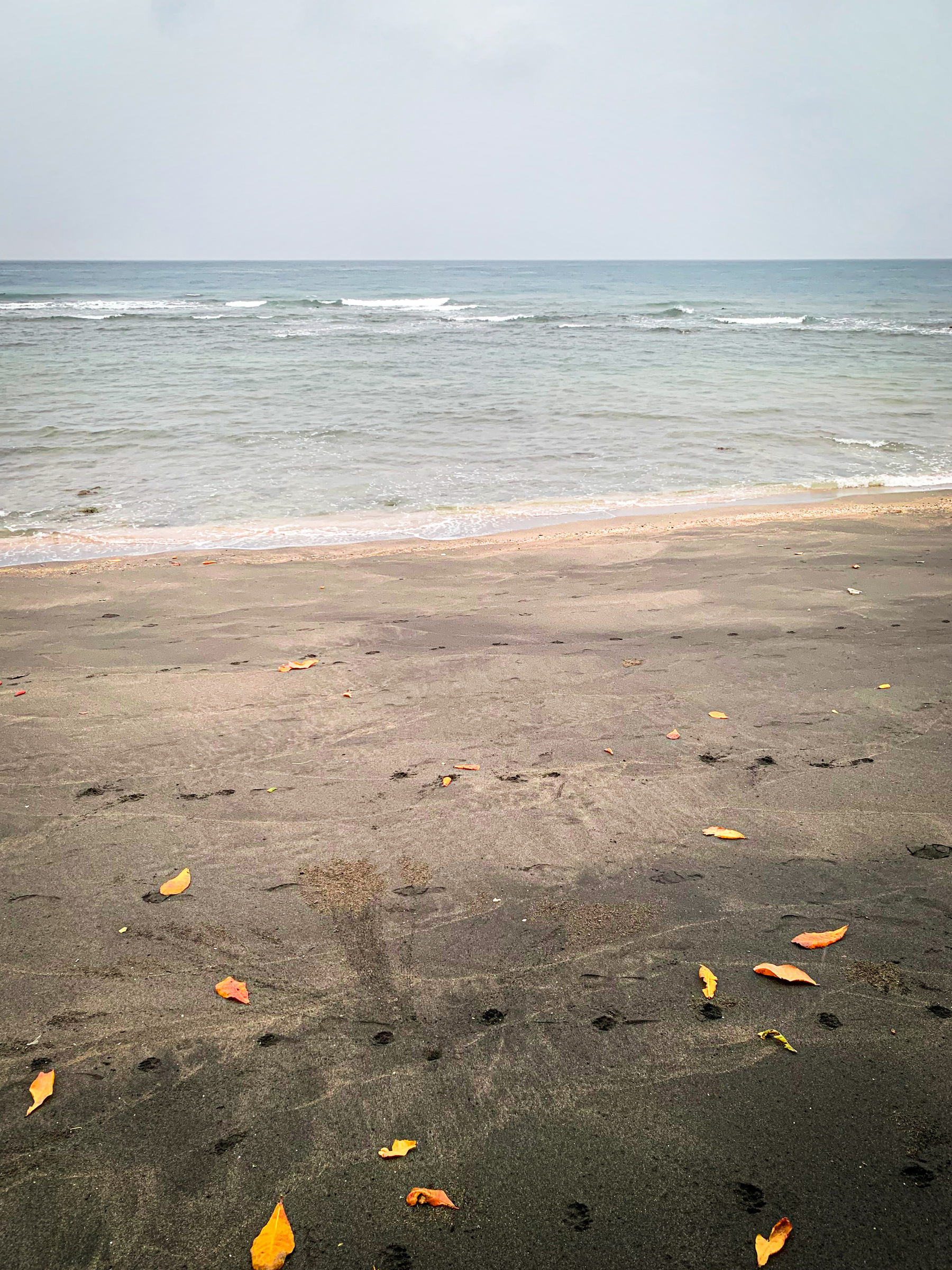
poly-seasonal //
silver robes of a rose rabbi
(This 12-part poem is a reply to Wallace Stevens’ “Le Monocle de Mon Oncle”; Further explanation may be found here.)
I.
—and did you ordinary women mock
in liturgies of utterances contained,
lines overwrought by time-keeping cant of yours?
and did you burst from bullied syllabub,
or clockwise stiffen into winter walls?
the musicals of ghosts, midwives and angels
echo, hollow, down stone-cold corridors.
and did you consecrate your spectacle,
coupling one who spoke—no, no—not nothing,
a stand-in that you killed while playing swords?
to quell the babbling spring by means of rain,
or merely quote the Mother’s name in vain?
she has been up at nights, considering
how to un-kiss this devil-gendered thing.
II.
well, i make believe an uncle, dead
and dear. less clear is fortune of the bird.
to fly, to seek, and what on earth to find
but torrent of an obsolescent mind
—he said, obscure and arduous to hear.
and yet, it flies. and though he doubts her crown
and midnight sight, she will fly too. and though
her silver glows in anecdotal mood,
her lilt, of stellar tilt, still loving, lingers
in braided dancing round a pool of blue,
tuning her clutch in nesting eddy of
said bird, whose course is old and hardly true—
and yet, it lives. rising, as golden-red
in flight, crowing like Scorpio in the East.
rest easy, uncle cold and fluttering
and lately of rambunctious residue;
a dove survives heaven to choir anew.
III.
O man, if you could see her witchlocs now,
or what’s become of Eastern expertise.
she is swamp-bitch, and twisted, twined and hitched
without romance by ruby claw to thorny crown,
her hair—each barb a bell, each bloody herb
a suicide. she’s heard of nobody’s
outrageous feats of raw technology.
in wracked rumors of Western fantasy
she knit a while textiles anti-exotic,
but sweaters have no use in the tropics,
where skin is king. and now we’ve come uncrimped,
uncrumpling, algal Anadyomene
of muddy water, Charybdis of the bog.
what’s history is past—nevertheless, he asks
why, woman, have you gone au naturel?
IV.
that spotless glass is not the book of Adam.
that trinity you stole cuts like a knife.
to be uncrumpled is to be un-uncled—
un-uncled, i become the poet’s wife.
i am un-hidden woman of the garden,
body un-ridden by the dust-bound word.
the queen of poet’s tongue, i lounge and lean
as music on my salivary throne.
the syllable you speak, my roundness is
her shapely immanence. our rectitude
is life—of tree—of life. so eat me, fallen
father of mankind, and know your foolishness.
speak again, brother—madly, as husband.
my honeyed bone un-spells your make-believe
kafir—he sees his wife sans négligee
who tastes the ripened fruit by naked eye.
says ordinary woman made explicit,
who steals your spectacle to save your life.
V.
can we remember together, after all
or does my voice harden the picture frame?
by being body, do i gather you
intolerably, or spread you thin as kin,
one stroking throb of summer esoteric—
you tickle me with feather of a peacock.
a gazer’s gloomy imagery is perfume
of incense, arousal at great distances,
long-smouldering and lit by tender match.
far from the proximity of virgins
there burn the Verbs of Love, arrayed
as galaxy of irretrievability—
before my eyes, you took and held my hand.
VI.
we used to call you man of twists and turns,
the dynamo—reckless, drowning, sea-rendered
until perennial blue, the one i knew
well enough to know, i loved nobody.
his thirst, prostrated, clutched me from below,
desperate to conceal from wingèd word
a history of suffering. a babe
buried his need in bosom of my nature,
drunk on the deep milk of disappearance.
his subterfuge despair was mythical,
until he made her fiction. he may not
remember me—but i keep by my heart
a wavy lock of sunset-auburn hair.
VII.
suppose a parable is just like her:
desired and defiled in equal measure.
his chivalry requires a blushing knight
to guard the Word, who is incarnate treasure.
i heard of one such rescuer of women.
who, for his lovely sin, was de-mountained
by crippled foot, and fated never nimbly
to climb again. but faith in constancy
makes deliberate gifts, arms built from hours
spent torquing tongs before roaring earth-core.
therefore, no purity of heart is borne
that lacks an alloy in the sooty forge.
thou shalt not fear the courage of your virgin,
is the limping gist of this comparison;
her shining is at once translucent bloom
and armor’s lustre, welded by humble Vulcan.
VIII.
if doom begins to seem antipathy,
baby, you’re scrolling past the blues. that time
of year thou mayst in our humanity—
but not the Muse—behold, of warty gourds'
cosmic grotesquerie. and there’s the rub.
as long as tongue still holds a gentle fold,
i will elucidate your grim hallucination.
launder and bandage the decaying limb
of sense, of memory, of time. wed heaps
of conscious compost consummate the bloom
in star-swept dimensions of titanium,
where whorls of microplastics never end—
machine poetic, of pumpkins meteoric,
becoming metaphysic—tender beings,
fizzing histories apocalyptic,
chime and rhyme as flutes of pink kombucha.
we sing the tropical-epochal view
at end of universe, or two. until
séance à trois, with chaperone of grackle,
i love the laughing sky—let’s make it crackle.
IX.
most oblatory heart, i bring you news.
despite our deadly faith in prophylactics,
resourceful Cupido pricks porous tactics,
ever hanging hymenal fools. behold:
on spun-gold surface of radiant yolk,
in sky-strewn milky way of albumen
suspended, questing’s lustiest conceit,
the part-less heartbeat of a person third:
as ancient aspect touches youngest plume
to stir, pure destiny, the origin
of life, as love, in pilgrimage secured:
the red point points, and to itself—as bird.
O holy gift, O crack in everything!
the mad midwifery of paladins
births not a baby, but a voice on fire:
ecce peep. now go, and meet your daddy-o.
his name’s Pipit the cocky chickadee;
he is a theory of fertility;
enthusiasm incommensurate
with clock-a tweedle-dee and tweedle-dum.
X.
a balmy chickadee alights on bough
of jepun tree—gigantic, bristle-trunked,
beatified—by tipped cosmos of day
and melting star of paradise, bodies
unveiled. we lie in kindred shades of them,
verbing and flowing, in blues made legible
by greenborn leaf. in leaves there hides a forest
where braid the wanderers their briared maths.
a souvenir shelters nectonic paths,
ancestral courses wild with counterpoint,
and mercy of geometry—proffered
by rivered children of Love’s oblivion.
XI.
dilated pools, star-gazed—surrender pinkly
to phobia of frogs. if you dismember
those bracing, faceless bodies—lost in love
their coiling gyres, desiring—helixing
directions inward, home. or intervene
against the skyward cough—raw, gaping need
to swallow more—when pollywog is strung
by lunar air. ritual drowning of gills,
suffering insurgency—the gulping word,
fata Morgana flooding Camelot
is twinned ecstasy of triple betrayal.
for swimmers' lust, the sea is all. and still
her cries are not for us, alone—we hone
the bluest chord of velvet-driven reverberation.
XII.
now all of us have lost our taste for mince,
the history of grinding, darkly, Adam;
so schooling blade, student of buah, prunes
til circumspect the hour. and she has thorns,
forms of her own—we prick ourselves and bleed
to name her flower. bending the voice to crown,
we’re drunk by literal skies of melody.
you found her singing by the sea, where she
had fled, as she remembered you were drowning.
who is the rose rabbi? i read, she comes
and goes. knows herself not. how would she know?
if glass were introspect, Iris of time—
to find she had been borne, a cradled question.
//
🌕
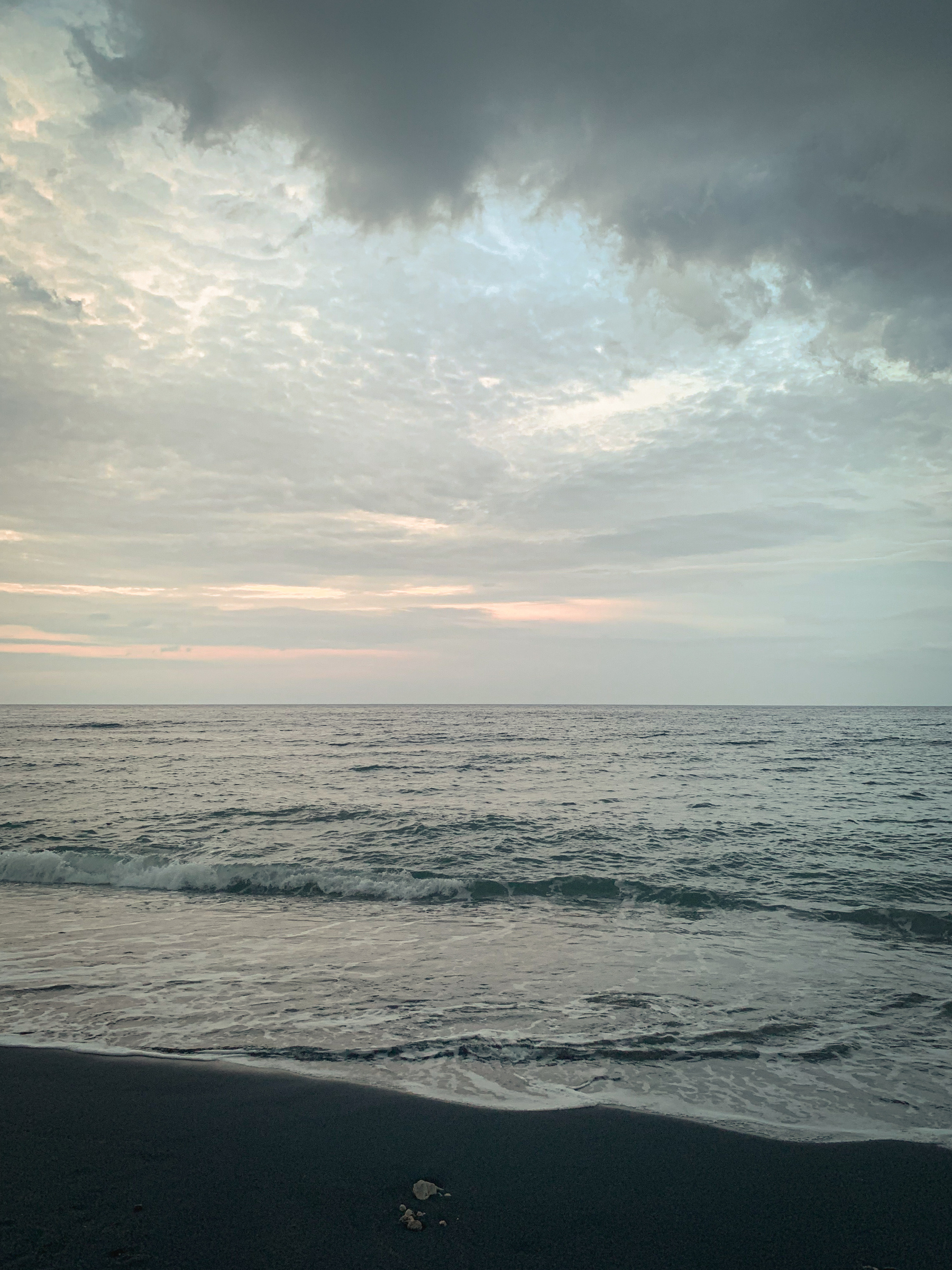
enigmatic //
statuesque
it was her, who stopped troubling
the land with niceties; stepped out
onto the battlefield; declared
her nation iron, under copper;
ignored the children wandering
her heart. youth was her cause, but not
her destination: yapping pups
complicit in decay: the younger,
the worse. she drew a blazing sky-
ward line: from torch to sea of salt,
past oxidized decline: thou shalt
not cross this primary design.
so she was plagued by change, and change
rendered infernal mumblings
absent colossal reality.
she swallowed smaller poetry.
commissioned shining arrows from
hard-laboring masses, to quell
their rumbling curiosity.
her staples were cement brownies,
lampshades as circus gags, popped in
electrified mazes, they tongued
chromatic polystyrene sporks.
her trick was firecrackers for
proposals of shotgun marriage,
with orphans, locked in sheds out back.
essential documents were stacked
inside official cases. fireproof.
the starry skies reflected in
a muddy flood of tasteless rain,
with deeper rivers reluctant
to drain her isolating kingdom.
so spread the miasmatic air.
seen pieces, scened for maximum
invictus — hot-bulb flashes — lost
their knack for light. she was the news:
scaffolding posed as oracle.
and when her history grew old,
turning explicit, they buried her
in broken rubberbands.
mutely, her constitution says
you shouldn’t look, or else you turn
proverbially inhuman.
so close your mind to this broken
container of one billion eyes,
open to fight the warlike hour,
their hearts pumping in empty beds.
the roosters crow to lose their heads.
on glitterbombs sit satanic
afterimages of her,
as rounds of necessary loss
resound on poorly-tuned guitars.
with no time for ambivalence,
her multitudes march on.
and nothing here to be unknown,
perspective infinite as stone —
from bone reflected, light of crone
across her scorched and haunted scars
delivered signals of empathy.
by flickering night, camels repose
in contemplation of footsteps
forgotten, where plod the wind-
whipped monuments of thirst. and all
that is unburnt is a mirage.
//
🌔
telescopic texts (avec "?") (10/x)
a balmy chickadee alights on bough
of jepun tree — gigantic, bristle-trunked,
beatified — by tipped cosmos of day
and melting star of paradise, bodies
unveiled. we lie in kindred shades of them,
verbing and flowing, in blues made legible
by greenborn leaf. in leaves there hides a forest
where braid the wanderers their briared maths.
a souvenir shelters nectonic paths,
ancestral courses wild with counterpoint,
and mercy of geometry — proffered
by rivered children of love’s oblivion.
//
i saw you dreaming, painted
in stains of sunrise
this morning, as the light
was lavender, before
the time of day.
your dream was, as you
would later, over breakfast, say
of me, and my sinking
country. but innocence
is how i, whirling
watch you dream. there is
a child, who teaches me
every graying day
( a serpent swallowing
the stick, i am, riding
my camel to Nusantara )
the taste of silver. salty
like tears of joy. bitter like
the finest tea, from misty
mountainous Java, fetching
( volcanic ridge meets light
at crescent — the fugitive
shatters, burning my eyes )
the steepest price.
a rosy shade brews golden.
your dream is denser
than a foreign country.
//
gospel of crickets
new fiefdoms are forming.
comes the gnawing saw,
gospel of crickets.
authors of books
are finding nooks.
the map is bending.
curving, like body
being, of course, a place —
the terroir of carrots, roasting
with garlic, chilli and cumin.
longing, we remember
touch and savor, from when
our land was whole, and full.
but our landscape is broken.
parsed before it lived, engendered
as stark disability.
glass fragments are swept
heaped, and scattered, opposite
the old neighborhood.
hillsides sizzle, lost in smoke.
the multitude glitters —
bodies, on fire.
with gas, the lord is cooking
at his stainless steel reflecting pool.
he extols these terraced acres
as civil emptiness,
slate, aluminum, and hollow.
static, it echoes.
not like the night,
contrary and brimming
with her buggy heat.
a holy thicket is dying,
nested — the host of silver light,
drawing foolish creatures.
grievers in the dark,
crowers in the autumn,
langurs in the mist.
sutra sisters
weaving webs,
an insubstantial orb.
the lord is not a fool;
he makes the rule.
nevertheless, the ruler will
in muggy hedges, be herb-
tested. Dasein is to suffer
the sound of little kin.
//
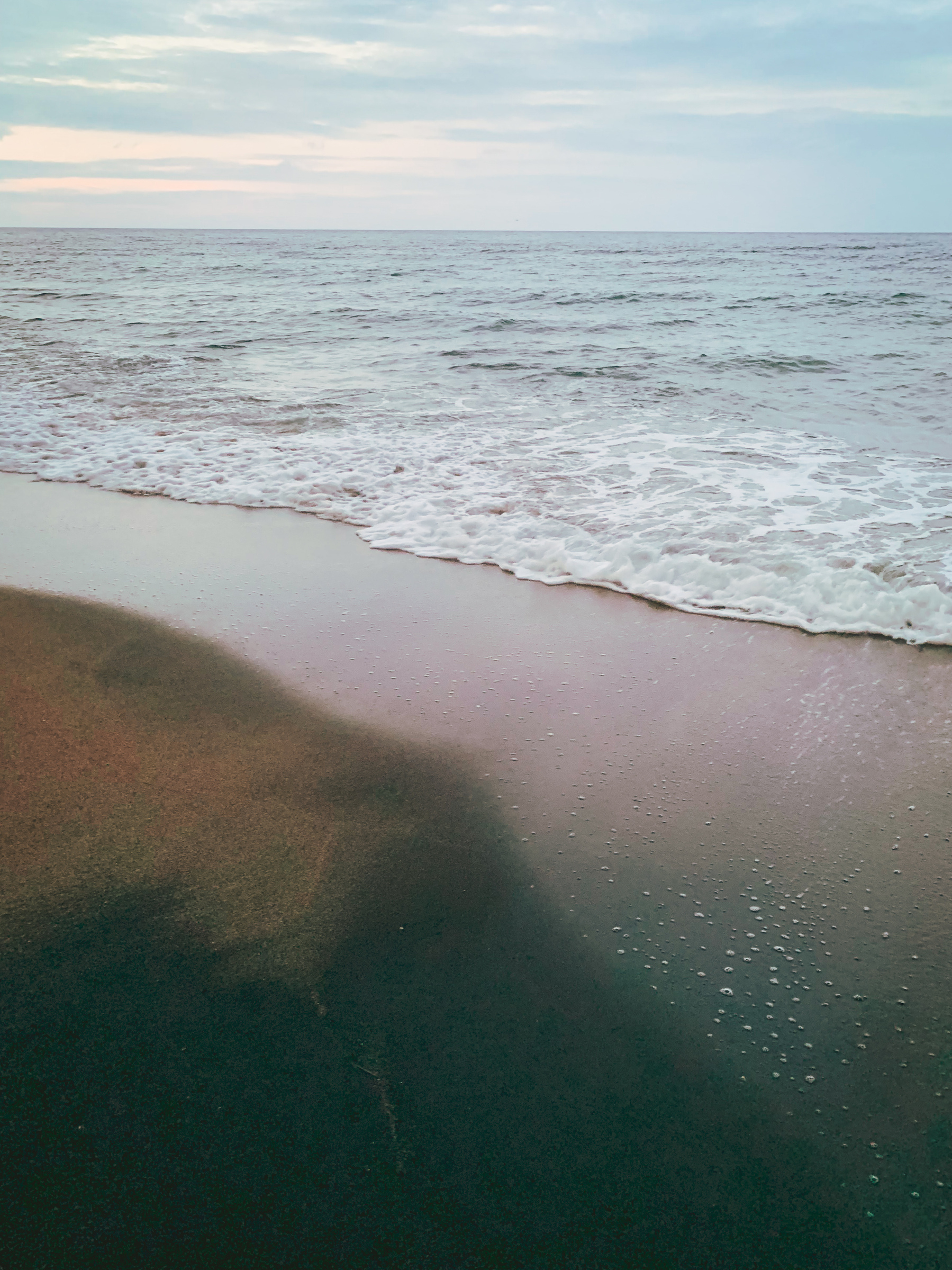
pale tender //
idea for the public-facing garden
three fates
with gigantic anime
boobies
Clotho
Lachesis
Atropos
dewi
of some
stranger land,
bodies carved
painstakingly
in wood
are set
to rule a while
from garden,
rambling
flowers bracelet
round their
skinny limbs
bending over
facing up
as if to see
the water aspect
of they and their
bosoms reflected
pornographic
sanded and grainy
thread-makers,
rippling
serene cut
in glassy pond
of koi
//
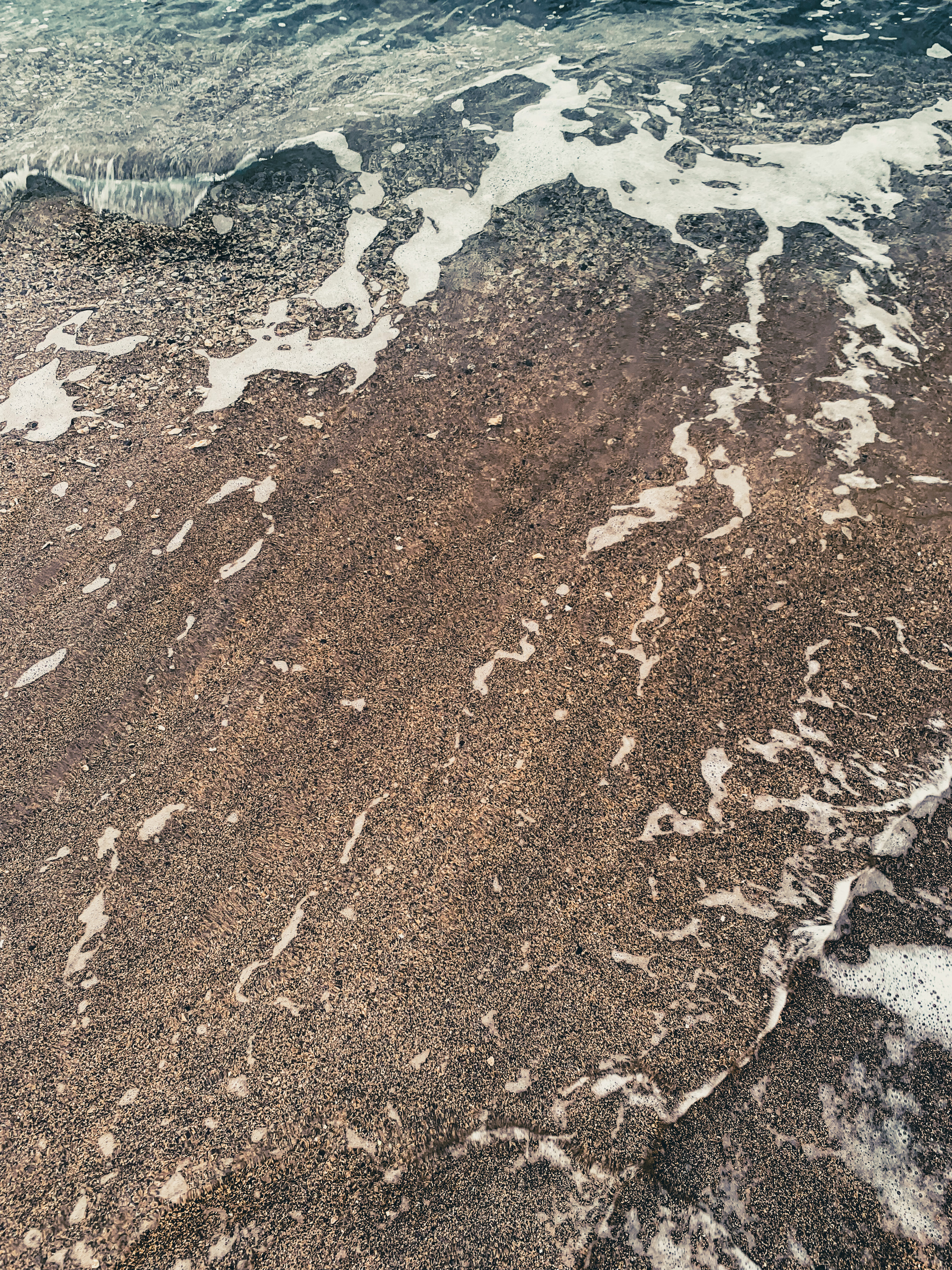
irretrievable //

frothy //
still
on the sawah
reeds resonate
as harmonies
inchoate
discord ebbs
and flows like
isothermal shadows
or disagreements
overheard from
a neighbor’s
tv show
the invectives
of detectives
sound like seagulls
hungry, jostling
for scraps
at the surface
of ocean
and
counter-
ocean
as hemispheric
currents under-
go reversals
as whale song
catalyzes
schools of squid
singing,
it does
not end
the answer
is still
( blowing
in the
wind )
//
selamat purnama 🌕
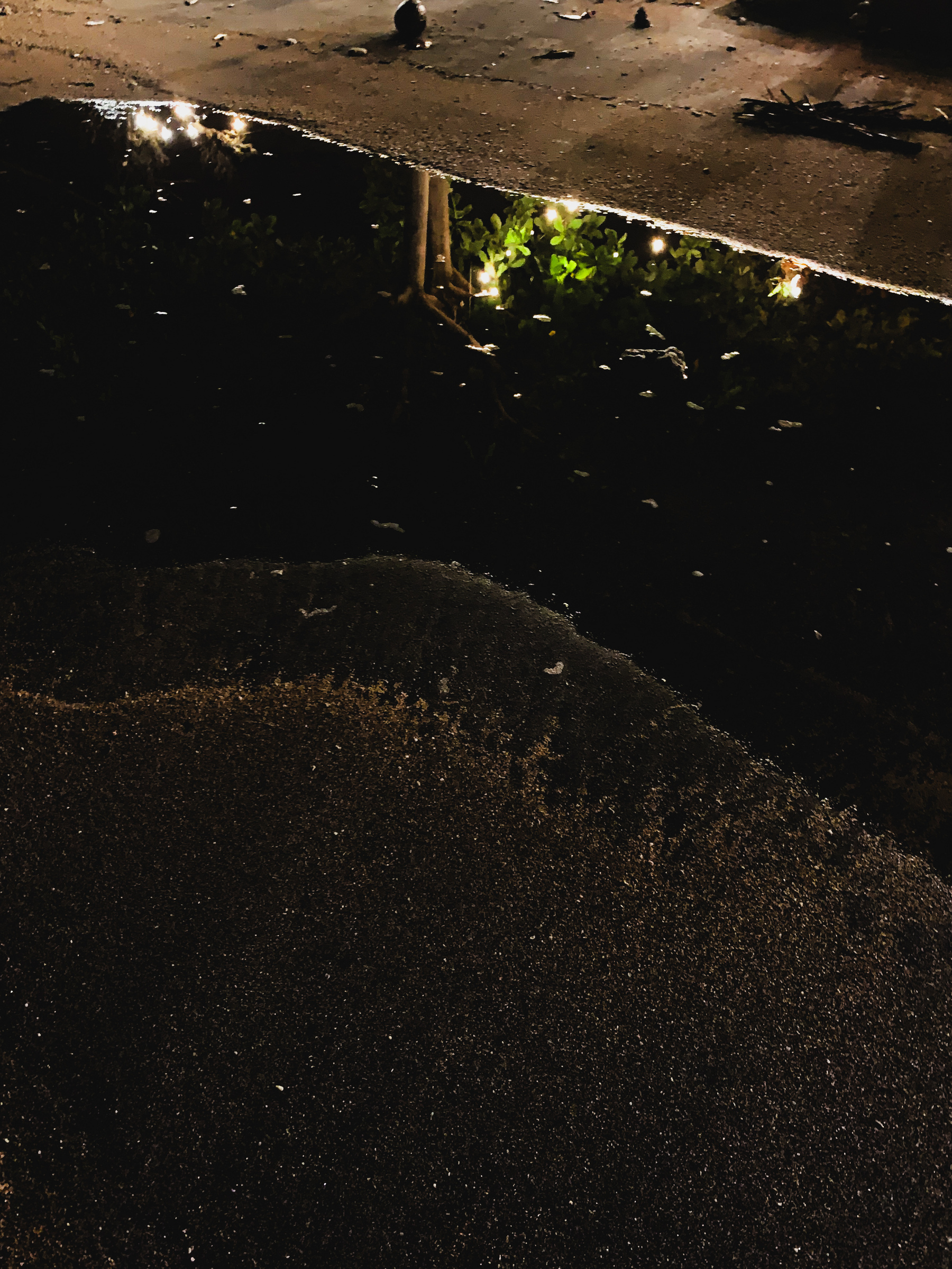
souchong
by golden-limned
salt-watery night
//

bristled in the wave //
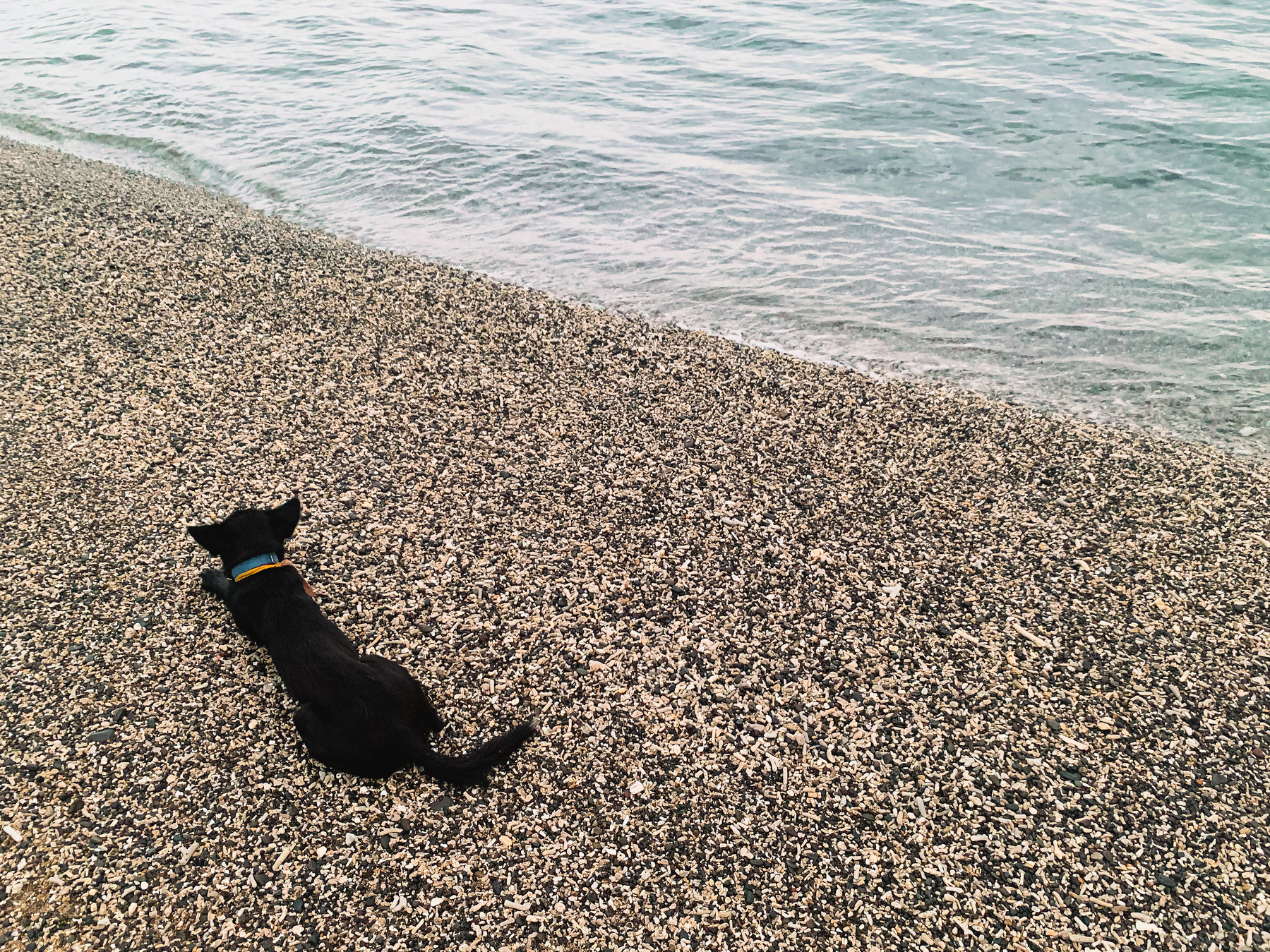
friendly stranger //

salt on skin //
